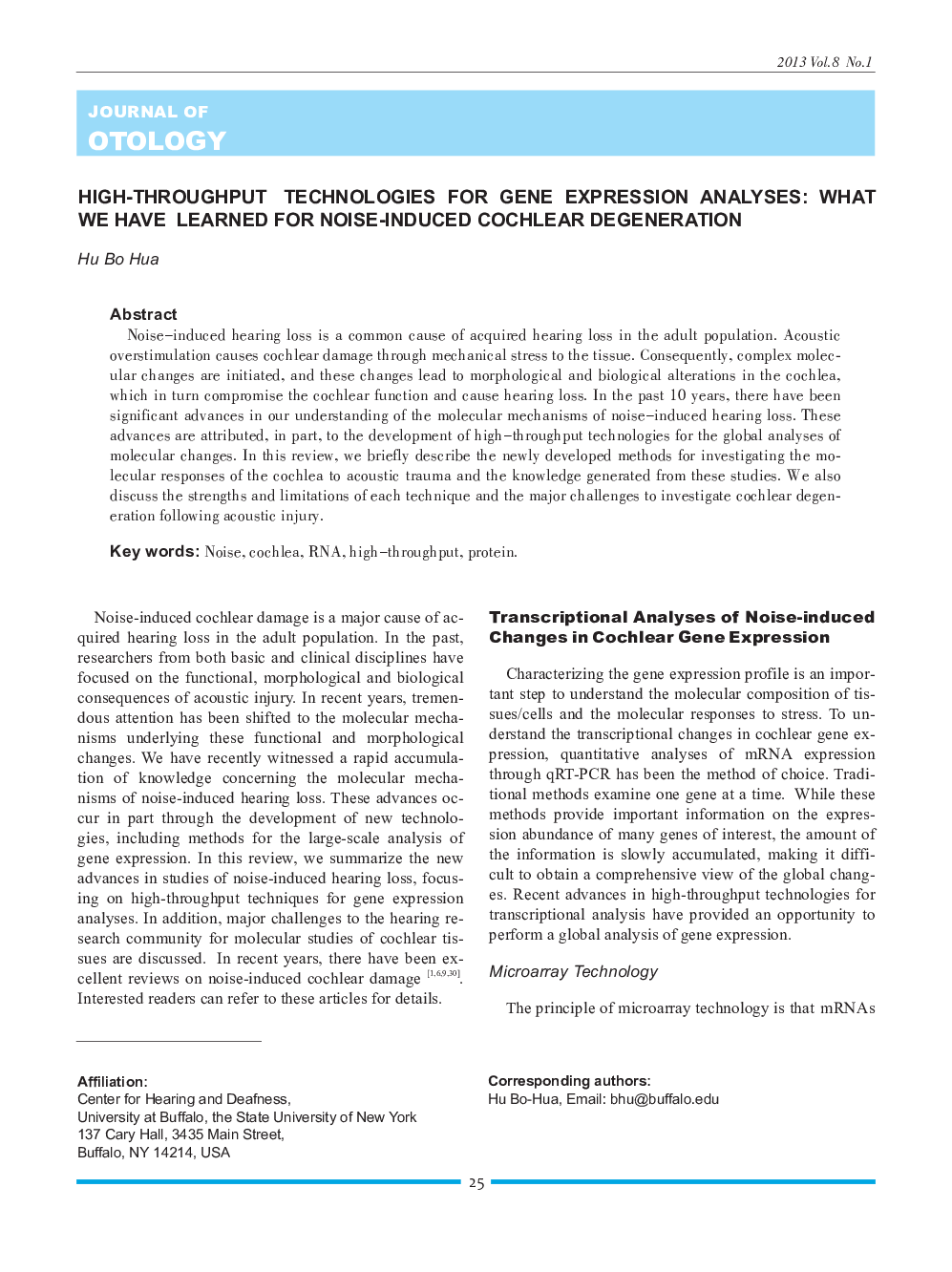| Article ID | Journal | Published Year | Pages | File Type |
|---|---|---|---|---|
| 4116822 | Journal of Otology | 2013 | 7 Pages |
Noise–induced hearing loss is a common cause of acquired hearing loss in the adult population. Acoustic overstimulation causes cochlear damage through mechanical stress to the tissue. Consequently, complex molecular changes are initiated, and these changes lead to morphological and biological alterations in the cochlea, which in turn compromise the cochlear function and cause hearing loss. In the past 10 years, there have been significant advances in our understanding of the molecular mechanisms of noise–induced hearing loss. These advances are attributed, in part, to the development of high–throughput technologies for the global analyses of molecular changes. In this review, we briefly describe the newly developed methods for investigating the molecular responses of the cochlea to acoustic trauma and the knowledge generated from these studies. We also discuss the strengths and limitations of each technique and the major challenges to investigate cochlear degeneration following acoustic injury.
